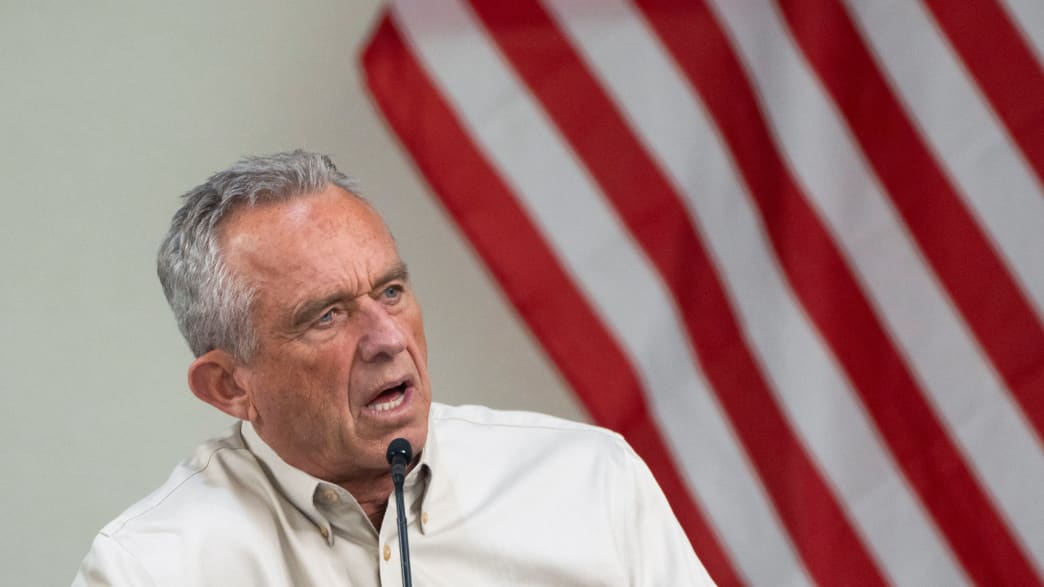FBI Confirms Trump Hit by Bullet at Pennsylvania Rally
The FBI confirmed on Friday that former President Donald Trump was struck by a bullet at a Pennsylvania rally on July 13, ending speculation over the nature of his injuries.
The confirmation clarified conflicting accounts -- including one from FBI Director Christopher Wray -- and quelled rising tensions and conspiracy theories surrounding the incident from which Trump continues to recover, as the Associated Press reports.
On July 13, a gunman opened fire at a rally in Pennsylvania, striking Trump in the ear, killing an event attendee, and seriously injuring two others.
Initially, there were conflicting accounts about the nature of Trump's injury, and federal law enforcement, including the FBI and Secret Service, did not immediately provide information.
Confusion Over Trump's Injuries
Trump's campaign did not release medical records or make doctors available for questions. Instead, Trump and former White House physician Rep. Ronny Jackson, provided updates on his condition. Jackson, who has been treating Trump since the night of the attack, confirmed the injury was a bullet wound.
The injury was verified through a CT scan at Butler Memorial Hospital. However, earlier comments from Wray caused confusion about the nature of Trump's injury.
FBI's Official Confirmation
On Friday, the FBI confirmed that Trump was indeed struck by a bullet. “What struck former President Trump in the ear was a bullet, whether whole or fragmented into smaller pieces, fired from the deceased subject’s rifle,” the FBI stated. The conclusion came after examining bullet fragments and other evidence.
Trump and his allies criticized the FBI and Wray for their handling of the information.
The former president expressed dissatisfaction with Wray’s handling of the situation, particularly with the FBI director's comments that led to confusion about whether it was a bullet or shrapnel that struck Trump.
Medical Assessment and Public Reaction
Jackson defended his medical assessment of Trump’s injuries and criticized alternative theories. He stated, “It was a bullet wound,” and emphasized that there is no evidence to suggest otherwise. Jackson, an experienced emergency medicine physician, reinforced his assessment by detailing his extensive background in treating gunshot wounds.
Trump shared his experience on Truth Social, saying, “I knew immediately that something was wrong in that I heard a whizzing sound, shots, and immediately felt the bullet ripping through the skin.”
He echoed this sentiment at the Republican National Convention, adding, “If I had not moved my head at that very last instant, the assassin’s bullet would have perfectly hit its mark, and I would not be here tonight.”
Political and Public Reactions
The shooting also resulted in other tragic outcomes, including the death of a heroic father and injuries to two others.
Sen. Lindsey Graham (R-SC) urged Wray to clarify his testimony, stating that the fact Trump had been hit by a bullet “was made clear in briefings my office received and should not be a point of contention.”
Trump's campaign spokesperson, Steven Cheung, criticized the media for engaging in conspiracy theories, saying, “The media has no shame in engaging in disgusting conspiracy theories.” He added that questioning the assassination attempt is “beyond the pale.”
Conclusion
The FBI's confirmation that Donald Trump was struck by a bullet at a Pennsylvania rally on July 13 has brought clarity to a situation fraught with speculation and conflicting accounts.
Despite initial confusion, Trump's medical team, led by Ronny Jackson, consistently affirmed that the injury was caused by a bullet.
The incident, which resulted in casualties and injuries, has prompted calls for clarity and accountability from federal authorities. As the investigation continues, the focus remains on ensuring transparency and restoring public trust.



